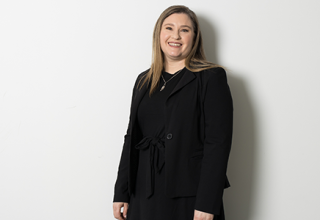Are councils obliged to provide a forum for unpopular views?

Are councils obliged to provide a forum for unpopular views?
Thursday 8 December, 2022
Councils have received welcome guidance on their obligations to hire facilities to groups expressing controversial views. Prior to the pandemic, councils around New Zealand were struggling to balance freedom of speech under the New Zealand Bill of Rights Act 1990 (BORA) with their reluctance to provide controversial groups the opportunity to air their views in council facilities and public spaces.
A recent Supreme Court decision has held that councils cannot refuse to provide a venue for controversial speech, but they are entitled to take health and safety concerns, and the costs of mitigating these into account both in deciding whether to make a venue available and in setting the cost of the venue hire.
Auckland Council and the “alt-right”
Regional Facilities Auckland Ltd (RFAL), wholly owned by Auckland Council, agreed to hire the Bruce Mason Centre in Takapuna to Axiomatic Media Pty Ltd (Axiomatic) to host overseas speakers. RFAL was later made aware that the speakers held highly controversial “alt-right” views and that Auckland Peace Action intended to blockade the venue to prevent the event proceeding. Due to the Centre’s location and the anticipated difficulties of managing protestors, attendees, traffic, and local business needs, RFAL decided to cancel the booking based on health, safety, and security concerns.
The decision was challenged in the High Court and then appealed to the Court of Appeal. The Court of Appeal agreed that RFAL’s decision was reviewable and involved the rights to freedom of speech and assembly, but upheld RFAL’s decision to cancel the booking, because the evidence demonstrated that RFAL was concerned with practicalities, including cost, protecting the venue, managing disruptions to local businesses and safety in the event of evacuation. The decision was then appealed to the Supreme Court.
Are council-controlled organisations subject to the Bill of Rights Act?
The first issue was whether RFAL, as a council-controlled organisation, was subject to the BORA. Council-controlled organisations (CCOs) are public companies owned by one or more councils. They are very common in New Zealand, as councils operating trading entities almost always do so through CCOs. Auckland Council and RFAL argued that RFAL was not subject to the BORA because it does not perform a public function. RFAL contended that its contractual arrangements with Axiomatic were commercial in nature, so there was no real difference between it and privately owned venue providers.
The Supreme Court agreed with the Court of Appeal that RFAL was exercising a public function when it decided to cancel the contract. RFAL is a public body, established with public funding, holding publicly owned property. It provides a service intended for the social wellbeing of the community. The Court held RFAL was essentially performing a public function on Auckland Council’s behalf, so was subject to the BORA. The Court accepted that this would have implications for a range of future decisions made by RFAL. The Supreme Court’s decision means that any CCO performing a public function is likely subject to the BORA.
Rights engaged by the decision
The Court accepted that the rights to freedom of expression and freedom of assembly were engaged by RFAL’s decision, though it mostly referred to freedom of expression as the considerations were the same for both rights. It disagreed that freedom of thought or freedom of assembly were engaged. The speakers’ ideas and views were widely available on the internet, so potential attendees could still access those ideas and views. The Court agreed with the Human Rights Commission that freedom of assembly relates to freedom to form associations and act collectively rather than just to associate as individuals.
Freedom of expression
RFAL argued that freedom of expression is a negative right: the state must not interfere with it but does not have to facilitate expression, meaning RFAL did not have a positive obligation to provide a venue for expression or assembly. Since there were alternative venues, cancelling the contract did not infringe the right to freedom of expression. The Court pointed out that the right to freedom of expression can involve positive duties to facilitate expression, particularly as the right to freedom of expression includes the right to receive information. RFAL’s decision to cancel limited attendees’ right to receive information, so could only be lawfully cancelled if cancellation was a reasonable limitation on freedom of expression. RFAL needed to consider whether it was reasonable to limit the speakers’ and attendees’ right to freedom of expression by cancelling the event.
Freedom of expression vs health and safety
RFAL’s only options were to cancel the event or allow it to proceed. Due to the venue’s features and location, it was not possible for RFAL to manage or reduce the health and safety risks posed by the event. The Supreme Court concluded that cancelling the venue was a reasonable and proportionate response to the health and safety risks. This was in the context of the features of the venue, which increased the health and safety risks, and the relatively low value of the booking compared to the high cost to RFAL of meeting its health and safety obligations. These made cancellation a reasonable limitation on the rights to freedom of expression and peaceful assembly.
However, the Court accepted that the process followed by RFAL was not ideal. It considered that the decision was rushed and had an element of panic. RFAL should have first obtained advice from the police about whether they could help manage the health and safety risks, which would have helped RFAL determine the appropriate balance between freedom of expression and the health and safety concerns. The Court did consider it reasonable to take the features of the venue into account, as these influenced the health and safety risks, and the associated mitigation cost. Axiomatic’s failure to disclose the controversial nature of the speakers at the outset was also relevant in assessing the reasonableness of RFAL’s response, as it had limited RFAL’s ability to impose protective measures or to ask for a bond to cover security costs.
How councils and CCOs should approach decision making
To minimise challenges to their decisions, councils need to carefully consider before they limit a right under the BORA. If a right is engaged under the BORA, it is not enough for the decision-maker to merely consider the right when making the decision. The decision-maker cannot reach a decision that is contrary to the BORA. This means that if the decision-maker decides to infringe on a right under the BORA, the court will expect to see evidence that decision-maker identified and weighed the right and considered whether the reasons to infringe the right were serious enough to outweigh the right.
Prior to the pandemic, and the associated reduction in public events, many councils felt like they were facing a no-win situation. Hiring venues to controversial groups meant they faced criticism and protests from constituents, potentially giving rise to health and safety concerns. Refusing venue hire meant that they could face legal action for breaching the BORA. Pandemic restrictions on gatherings gave councils some breathing space on this issue and the Supreme Court decision provides welcome guidance for councils on how to balance their obligations under the BORA and their health and safety obligations.
For any questions relating to this article, please get in touch with one of our experts below.





